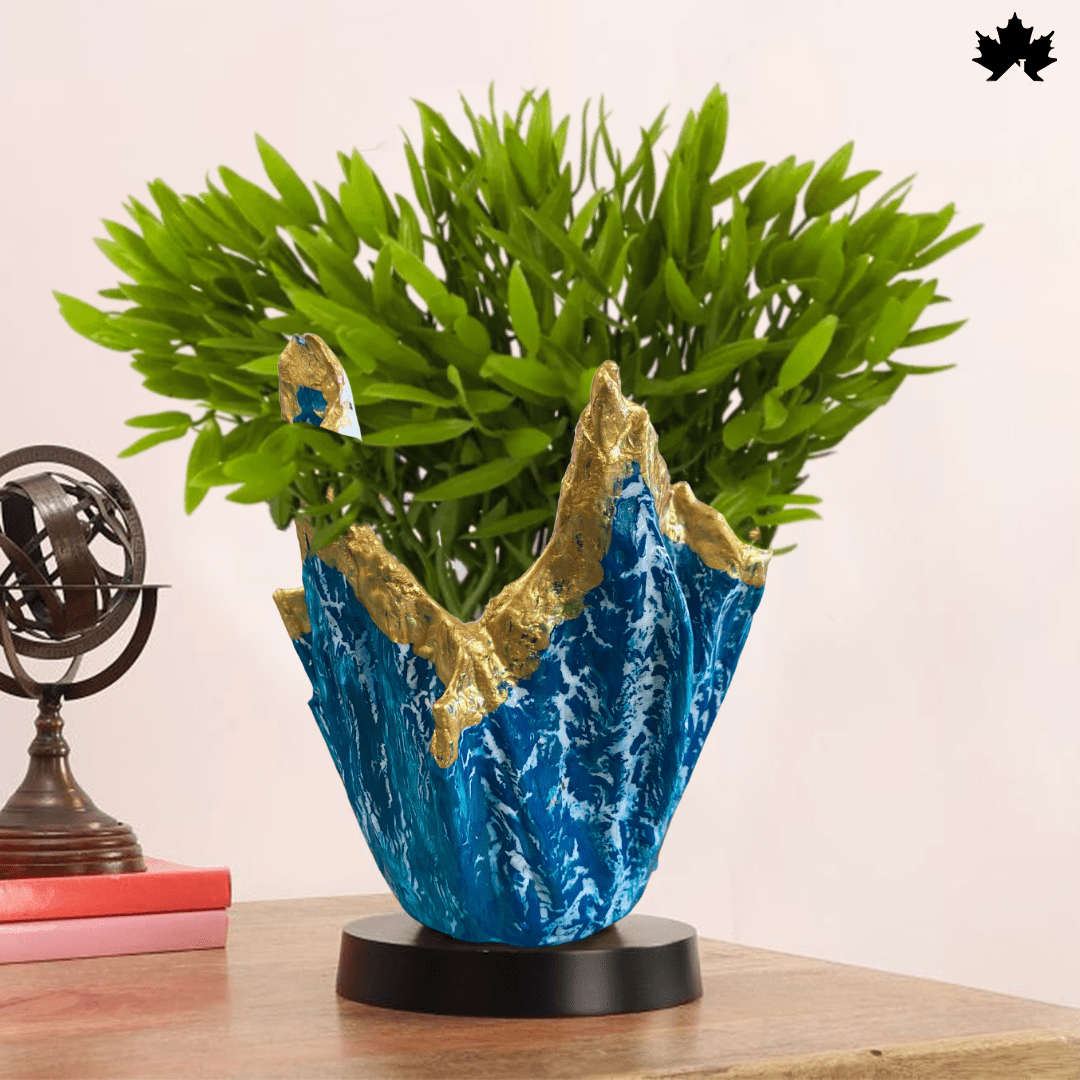Transform Your Balcony with Eco-Friendly Planters and Sustainable Gardening Tips-Fankaarlok

Balcony gardening is a popular trend among urban dwellers. It’s a way to bring nature into concrete jungles.
But have you considered the environmental impact of your gardening practices? Traditional plastic pots, for instance, contribute to plastic waste.
Switching to eco-friendly planters can make a big difference. These planters, made from biodegradable or recycled materials, reduce waste and promote sustainability.
In this article, we’ll guide you on transforming your balcony with eco-friendly planters. We’ll also share sustainable gardening tips to help you create a green oasis in your urban space.
Understanding Eco-Friendly Planters
Eco-friendly planters aim to minimize environmental harm. They offer a sustainable solution to traditional plastic options. These planters can be made from a variety of materials.
The key is in their construction. They utilize biodegradable or recycled components, reducing the strain on our planet. This makes them an attractive option for green-minded individuals.
Choosing eco-friendly planters supports the circular economy. It promotes the reuse and recycling of materials. This practice not only diminishes waste but also conserves natural resources.
A variety of eco-friendly planters are available on the market. They include:
- Biodegradable pots
- Green planters from recycled materials
- Upcycled containers
Each planter type has unique benefits. Some decompose over time, enriching the soil, while others repurpose waste into functional garden containers. Understanding their characteristics helps in selecting the right fit for your balcony garden needs. Integrating these green solutions can help reduce your carbon footprint significantly.
Benefits of Using Eco-Friendly Planters
Eco-friendly planters provide multiple benefits. They reduce plastic waste significantly. This contributes to less pollution and a cleaner environment.
These planters are designed to support sustainable gardening. They enhance plant health and boost growth by using natural materials. Such materials are often porous, allowing roots to breathe.
Biodegradable pots enrich the soil as they decompose. This process releases nutrients back into the earth, promoting healthy ecosystems. It’s a natural cycle that benefits plant life.
Using planters made from recycled materials supports the circular economy. It helps close the loop in waste management. This practice encourages the reuse of valuable resources.
Choosing these green solutions is a step towards sustainability. It aligns with eco-conscious living, showcasing commitment to protecting the planet for future generations.
Types of Eco-Friendly Planters
Eco-friendly planters come in various forms to cater to different needs. Each type offers unique environmental benefits.
Common Types:
- Biodegradable Pots: Made from natural fibers that break down over time.
- Recycled Material Planters: Created from repurposed plastics, metals, or glass.
- Compostable Planters: Crafted to disintegrate and enrich the soil directly.
Biodegradable options are perfect for those who want minimal post-use waste. They support a natural breakdown process, contributing to soil health.
Planters made from recycled materials showcase innovation. They transform waste into functional items, thus reducing landfill contributions.
Compostable planters double as soil enhancers once their usefulness as containers ends. Their decomposition supports the garden’s nutrient cycle.
Choosing the right type involves considering your gardening goals. Understanding each option’s benefits aligns your garden with your eco-friendly values.
Biodegradable Pots
Biodegradable pots offer a seamless blend with nature. These pots are made from coconut coir, peat, or wood pulp. They break down naturally, enriching the soil.
These pots eliminate the need for plastic, which lingers in landfills. As they decay, they enhance the soil with organic matter.
Such pots are ideal for starting seedlings. They allow planting directly in the ground without disturbing roots.
Their use streamlines the gardening process. It reduces waste and supports healthier plant growth. For gardens aiming for minimal impact, biodegradable pots are a top choice.
Green Planters from Recycled Materials
Recycled material planters offer durability with a green heart. Crafted from plastics, metals, or glass, they repurpose waste effectively.
These planters are sturdy and long-lasting. By using these materials, we divert waste from landfills, promoting circularity.
Their designs can be very versatile, suiting various aesthetic preferences. Choosing these planters supports innovative recycling practices.
They align with sustainable living goals, supporting conscious consumerism. When you opt for recycled planters, you’re investing in the earth’s future.
Such products emphasize the importance of reusing materials. They embody a commitment to reducing waste and promoting environmental responsibility.
Selecting the Right Eco-Friendly Planter for Your Balcony
Choosing the ideal eco-friendly planter involves a few key considerations. First, think about your available space and how much room you need for your plants.
Consider the weight of the planter, especially if your balcony has weight limits. Lighter materials may be best for higher stories.
Think about aesthetics; choose planters that match your style while being environmentally sound. This way, your planters contribute positively to your home’s appearance.
Drainage is another crucial factor. Ensure your planter has good drainage to prevent waterlogging and promote healthy plants.
Finally, research the materials to ensure their sustainability credentials. This ensures your choice aligns with eco-conscious values.
DIY Eco-Friendly Planter Ideas
Creating your own eco-friendly planters can be both fun and sustainable. Start by using items you already have at home.
Consider turning an old tin can or jar into a unique plant container. Just make sure to add drainage holes at the bottom.
If you have unused wooden boxes or crates, these can be great as rustic planters. Line them with burlap for added style and drainage efficiency.
Upcycle old tires by painting them for vibrant planters. Stack them for visual impact on your balcony.
Recycling plastic bottles or milk jugs is another option. Cut them in half and customize them with colors to fit your garden’s theme.
Sustainable Gardening Tips for Balcony Gardeners
Adopting sustainable gardening practices on your balcony can significantly reduce your environmental footprint.
Begin by assessing how sunlight moves across your space to position planters effectively. This ensures plants get the right amount of light.
Incorporate a composting system in your balcony setup for organic waste. This enriches soil and promotes healthy plant growth.
Use a variety of native plants to attract local wildlife and enhance biodiversity. Remember, they’re well-suited to your local climate.
Here are some sustainable gardening practices to consider:
- Use mulch to retain soil moisture.
- Rotate plant types seasonally.
- Avoid synthetic pesticides; use natural alternatives.
Keep a gardening journal to track plant health and progress over time. This helps in making informed decisions for future gardening projects.
Water Conservation and Drainage
Efficient water use is key for a balcony garden. Opt for planters with proper drainage holes.
Overwatering is a common mistake. So, use a drip irrigation system to minimize waste.
Collect rainwater in barrels for watering during dry periods. This conserves resources and is cost-effective.
Organic Soil and Fertilizers
Organic soil offers essential nutrients for your plants. It’s a healthier choice for both plants and the environment.
Choose fertilizers that are natural and chemical-free. These encourage robust plant growth without harming the soil.
Compost boosts plant vitality by enriching soil. It’s an easy way to recycle kitchen scraps and produce nutrient-dense soil amendments.
Companion Planting and Pollinator-Friendly Plants
Companion planting supports plant health through natural means. Pair plants that benefit each other to ward off pests and enhance yield.
Incorporate pollinator-friendly plants, such as lavender or sage. This will attract bees and butterflies, crucial for pollination.
Diverse plant species create a balanced ecosystem. This diversity reduces the need for chemical interventions and supports garden health.
Maintaining Your Eco-Friendly Planters
Regular maintenance ensures the longevity and effectiveness of your eco-friendly planters. Begin by checking for adequate soil moisture and adjust watering habits as needed.
Clean your planters frequently to prevent mold and pests. Remove dead leaves and debris that can accumulate on the soil surface.
Inspect your planters for signs of wear, especially if they’re biodegradable. Replace them when necessary to ensure stable plant support.
Finally, monitor the health of your plants. Use natural remedies to manage pests and diseases, keeping your garden thriving and sustainable.
The Future of Eco-Friendly Planters and Sustainable Gardening
The landscape of eco-friendly gardening evolves with innovation in materials and design. New technologies focus on enhancing sustainability and functionality.
Manufacturers are exploring advanced biodegradable materials. These materials promise to further reduce environmental impact and integrate naturally with soil ecosystems.
As awareness grows, so does the market for green planters and sustainable practices. This shift helps foster a greener urban environment and more resilient gardens.
Conclusion and Call to Action
Eco-friendly planters can transform your balcony into a sustainable haven. They reduce your carbon footprint and support plant health effortlessly.
Start small by introducing a few green planters today. Embrace sustainable gardening practices and inspire your community to join this green revolution.
For more information, connect with us on instagram @fankaarlok.
Check out our other products here: https://fankaarlok.in/categories/



